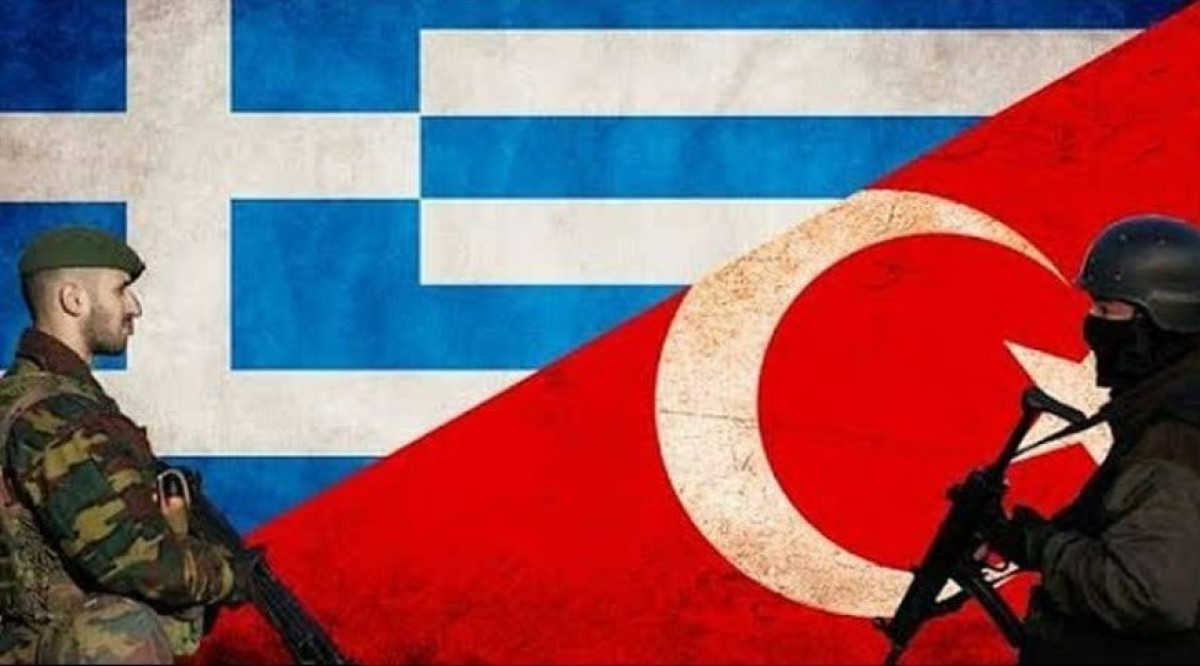 329
329
Ankara's Greed, Athens' Alliances: Are Greece and Turkey Doomed to Conflict?
Ankara's Greed, Athens' Alliances: Are Greece and Turkey Doomed to Conflict?
The longstanding tensions between Greece and Turkey have once again surfaced, with the potential for a seemingly inconspicuous issue to escalate into a major crisis between these two nations. Rooted in historical distrust and strategic competition, the relationship between these NATO allies has been marred by tensions that, if left unaddressed, could have far-reaching global implications.
By: A. Mahdavi
Historical Context
The genesis of the current tensions can be traced back to the Imia Islands dispute of 1995, a pivotal event that resulted in the demise of three Greek officers and drew the intervention of the United States. The incident unfolded when a Turkish cargo ship, the Figen Akat, ran aground on the easternmost of the Imia Islands, situated just seven kilometers off the Turkish coast. What ensued was a tense standoff, with both countries asserting their claims over the islands, triggering a diplomatic crisis that involved international stakeholders.
The involvement of the US, the European Union, and political leaders from both Greece and Turkey further complicated the situation. Despite Greece citing historical treaties to refute Turkey's claim to sovereignty, the impasse persisted until US intervention finally diffused the escalating conflict.
Furthermore, Greece's refusal to extradite Turkish government officials implicated in a coup attempt has only served to exacerbate the strained relations between the two nations. Beyond territorial disputes, economic rivalries over the exploitation of Aegean Sea resources have added another layer of complexity to the bilateral relationship, perpetuating a cycle of tension and mistrust.
Geopolitical Maneuvering
Against the backdrop of a shifting international landscape, Greece finds itself navigating a delicate balance of power dynamics. Recognizing the potential isolation in a military confrontation with Turkey, Greece has sought to signal its resolve while avoiding escalation. By positioning itself as a maritime powerhouse and a key player in EU military operations, Greece aims to deter Turkish aggression through a demonstration of military strength and readiness.
Furthermore, Greece's proactive engagements in regions like the South Caucasus, including military and economic partnerships with Armenia, underscore its commitment to bolstering its international standing through strategic diplomacy. As Greece grapples with internal challenges such as economic uncertainties and the refugee crisis, its adept diplomatic maneuvers aim to mitigate tensions with Turkey and safeguard regional stability.
A Way Forward?
As Greece pursues preventive measures to de-escalate tensions with Turkey, the crucial role of its allies in supporting these efforts cannot be overstated. The potential ramifications of a full-blown crisis extend beyond Greece's borders, impacting the broader European Union and beyond. The collective response of international stakeholders will be pivotal in averting a crisis that could have far-reaching implications for regional security and stability. In conclusion, the intricate web of historical grievances, geopolitical calculations, and economic interests underpinning the Greece-Turkey tensions underscores the urgent need for diplomatic finesse and strategic foresight in navigating this volatile relationship. Only through concerted efforts and collaborative engagement can these two nations chart a path towards sustainable peace and mutual prosperity.
 329
329
Comment
Post a comment for this article